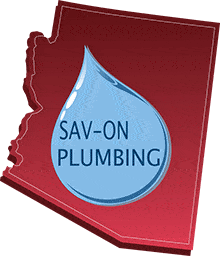How can you delay water heater repair or replacement? By following these simple steps:
- Drain and clean your tank annually.
- Turn the tank’s electricity or gas off first.
- Turn off the water supply to the tank.
- Let the water in the tank cool, and then drain the tank completely.
FYI: A screened drain can prevent rust particles and other sediment from clogging smaller pipes. - Turn the water supply back on and let the tank refill about half way.
- Drain it again to remove any lingering sediment.
- Refill the tank again and then turn the gas or electricity to the tank back on.
- Turn your thermostat down to 120 degrees Fahrenheit or below. A lower temperature:
- Preserves the life of your tank
- Saves energy and money
- Prevents scalding accidents
Note: Nudge the temperature up a tad higher than 120 degrees to prevent mold and bacterial growth.
- Use the “Vacation Setting” when you leave for an extended visit. The pilot light stays lit but the water won’t heat. You’ll save money on energy.
- Even when your water heater is tucked away in a closet or mechanics room, be sure to check the area and keep the floor around it clean. That way, you can immediately detect excessive rust or other debris buildup that can indicate potential problems.
Even if you keep your water heater in excellent repair, its life expectancy is between 10 and 15 years. After that, you’re on borrowed time. When water heater replacement is in your near future, there are some items you should consider:
Size: Water heater replacement tanks come in sizes ranging from 20 – 80 gallons. To know what size you’ll need, estimate how much water your household uses during peak times and how many people live there. The size you had before may not be applicable today. For example, children may be out of the house or you have more visitors than you did a few years ago. Allow 12 gallons per person, but you’ll also want to consider other appliances that use water, such as a dishwasher or clothes washer. Try this online calculator to more accurately gauge your use [http://www.csgnetwork.com/waterusagecalc.html]
Energy Type: Electric or natural gas? Typically, natural gas will be less expensive to operate than electric, but it depends on your local utility costs. You may want to explore greener options, as well. Solar heaters are a great choice because of the high number of sunny days and shorter winters. While they can be more expensive to purchase, the operating costs are low. You may recoup your cost in a year or two and then start seeing a real savings in your utilities bill. Geothermal is another option, using energy from the earth, but like solar-powered tanks, the heating unit can be costly, while operating costs remain low. Propane water heater tanks are the longest lasting (up to 20 years) because they’re built with longer lasting heating elements. Whichever energy source you choose, be sure to check the energy factor or EF listing on its yellow energy use label. The higher the number, the more efficient the tank is.
At Sav-On Plumbing, we can help you with water heater repair, or make recommendations on a water heater replacement. Give us a call for your options today.
